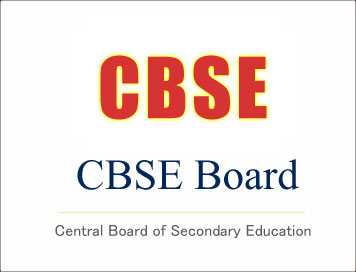(Schedule) Post- Exam CBSE Annual Counselling Starts From 27th May To 10th June 2013
Disclaimer: This website is NOT associated with CBSE, for official website of CBSE visit - www.cbse.gov.in

Post-exam CBSE Annual Counselling Starts From 27th May To 10th June 2013
The Second phase of counselling will begin from 27th May and continue till 10th June on all working days from 8 am to 10 pm. This is the 16th consecutive year that CBSE will be providing counselling services to students and parents to overcome common psychological problems and general queries after the declaration of Class X and XII results.
CBSE Tele-Helpline- 2nd Phase
The CBSE counselling is an outreach programme which is
carefully designed keeping the heterogeneity of student’s population a nd
geographical spread. CBSE Tele counselling is largely offered by trained coun
sellors and Principals from within CBSE affiliated schools located in India and
outside India. It is a voluntary, free of cost service provided by the
participants.
During the 2nd Phase, 45 experts including Principals, trained counsellors from CBSE affiliated government and private schools and few psychologists will be available for Tele-Counselling
-
Out of these, 37 are from India and 8 counselors from outside India including Japan, Kuwait, Doha-Qatar and Saudi Arabia, U.A.E, Sultanate of Oman are participating in this program.
Centralized Toll Free Access in India
CBSE has introduced a ‘Centralized Access System’ (CAS)
similar to that of a call centre. For better accessibility and convenience the
students can dial a toll free number 1800 118 004 from any part of the country
and get in touch with operator for general queries related to result or with
counselors for one to one telephonic counselling from 8 am up to 10 pm..
Counselling for Specially Abled Children This year also CBSE has arranged
counselling facility for Specially Abled Children to take care of the needs and
anxiety of special children after their exam result.
Important Information regarding counseling
Broadly speaking examination results should be treated as a spring board to future achievements and better prospects. Examination results can cause a great deal of anxiety to the students and parents alike. However, a consistent family support system can be of help.
Parents should look out for the following signs:
-
Physical symptoms, such as sleeping or eating more or less than usual
-
Mental symptoms, such as loss of concentration and interest
-
Emotional symptoms such as tears, tantrums, panic attacks
-
Addictive symptoms, such as excessive drinking or smoking or using pills
-
Self depreciating comments “I knew I’ll never pass or never do well or…Mohit’s much brighter than me………”
Must Dos for parents:
-
Do not nag the child. Be supportive and encouraging.
-
Help the child to develop self-discipline, self-direction, selfconfidence and a sense of achievement.
-
Just good schooling and tuition are not substitutes for emotional cushioning.
-
Help the child in maintaining his confidence especially when he seems discouraged by his dropping marks or grades. Do not displace your anxiety on the child.
-
The achievement goals should be realistically set according to the child’s capability.
-
Praise the child when he does well. Encourage the child’s performance with positive statements like, “well done”, “you can do better”, rather than saying “that was not enough”.
-
Do not harp on previous failures or results.
-
If achievement expectations are too high it may lead to greater anxiety.
-
Humor relieves tension. Be light and humorous with the child. Try to gain your child’s confidence and discuss problems. Help to find a solution.
-
Exams are not the end of the world.
-
Accept that expectation for every one to do well is unrealistic.
-
Involve the child in decision making.
-
Be aware of the market demands and do not concentrate on traditional courses alone. This will narrow down the options considerably and cause stress.
-
Many students do better after school because of maturity and greater focus, course of interest, rise and awareness level and exposure to options.
-
Avoid criticizing or comparing the child with others.
-
Make the child feel important and loved.
-
Listen to your child.
-
Take help of a professional counselor in case of a conflict or depression over the result.
The students should:
-
Assess priorities, assets and difficulties
-
Follow a normalized routine atmosphere at home.
-
Should not imagine extreme consequences and worst situations.
-
Should not magnify failure or demean themselves.
-
Contact the teachers or counselors on feeling low or anxious or disinterested.
-
Develop alternative coping strategies and de -focus from the pain.
-
Learn to be positive.
-
Learn to relax.
-
Talk to family and friends.
-
Stop worrying. Result is not the ultimate decisive factor.
-
It is more important to choose the next options.
-
Find out and update with wide and varied career choices. Invariably the decision should not be based or influenced by the friends.
-
For an average performer or below average, skill based/vocational courses are best choice.High risk Behaviour: Drug Abuse, Self Harm, Aggression Basic Symptoms
-
Behaviour that is potentially harmful to self or others.
-
Behaviour relating to consumption and abuse of psychotropic drugs or commonly used medicines like cough syrups, sleeping pills, painkillers, without prescription.
-
Behaviour related to smoking and consumption of alcohol.
-
Self-harming behaviour like Suicide, Wrist slashing, hitting self, Starving deliberately etc.
-
Harm to others in the form of abusive and aggressive behaviour like rash driving or violence to others in any form.
Courtesy : CBSE